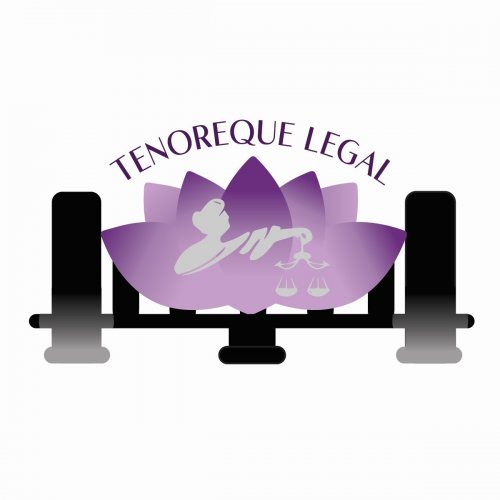Best Sports Law Lawyers in Trinidad and Tobago
Share your needs with us, get contacted by law firms.
Free. Takes 2 min.
Or refine your search by selecting a city:
List of the best lawyers in Trinidad and Tobago
About Sports Law in Trinidad and Tobago
Sports Law in Trinidad and Tobago is an emerging field that addresses the legal issues surrounding sports and athletics. This area of law encompasses a wide range of topics including governance of sports organizations, contracts, torts, intellectual property rights, doping, and athlete representation. Trinidad and Tobago, known for its passion for cricket, football, and athletics, is seeing an increasing need for legal structuring within sports due to the industry's growth. Sports Law provides a framework to ensure fairness, integrity, and the protection of stakeholder interests within the sports sector.
Why You May Need a Lawyer
Individuals and organizations may require legal assistance in Sports Law for various reasons. Common situations include:
- Negotiating player contracts and sponsorship deals.
- Resolving disputes between athletes, teams, and organizations.
- Addressing doping allegations and compliance with anti-doping regulations.
- Handling intellectual property issues like trademarking team logos or merchandise.
- Ensuring compliance with regulatory requirements and sports governance.
- Representation in cases of personal injury or liability issues arising from sports activities.
Local Laws Overview
In Trinidad and Tobago, several local laws and regulations intersect with Sports Law:
- Sport and Recreation Act: This act outlines the government's role in promoting sports and recreation, detailing procedures for national sports policy implementation.
- Intellectual Property Laws: They protect trademarks, copyrights, and designs associated with sporting events and merchandise.
- Anti-Doping Regulations: Governed by WADA guidelines, these regulations aim to maintain a drug-free sports environment.
- Contract Law: Governs the agreements between players, agents, sponsors, and organizations.
- Tort Law: Addresses liabilities and potential compensation for injuries or damages during sports activities.
Frequently Asked Questions
What is Sports Law?
Sports Law is a legal field that covers issues related to sports, including contracts, intellectual property, doping, dispute resolution, and sports governance.
Do I need a lawyer to negotiate a player contract?
Yes, having a lawyer helps ensure that the terms are fair and legally sound, protecting your rights and interests.
What should I do if I'm accused of doping?
Contact a lawyer specializing in Sports Law to help navigate the regulations and defend your case under existing anti-doping laws.
How can I protect my sports brand's intellectual property?
Register trademarks, copyrights, or designs related to your brand with the appropriate intellectual property offices.
What are the main sports regulatory bodies in Trinidad and Tobago?
Key bodies include the Ministry of Sport and Community Development, the Trinidad and Tobago Olympic Committee, and various national sports federations.
How does tort law apply to sports in Trinidad and Tobago?
Tort law can apply when there is an injury or damage; it helps determine legal responsibility and potential compensation.
Are sponsorship deals subject to law in Trinidad and Tobago?
Yes, sponsorship deals are governed by contract law, outlining obligations, rights, and sponsorship terms.
Can sports clubs face legal issues for fan incidents?
Yes, clubs can face liability if found negligent in managing or preventing incidents involving fans.
What recourse do athletes have against unfair treatment by sports organizations?
Athletes can seek legal recourse through contractual claims, challenging governance practices, or filing grievances with regulatory bodies.
How do I handle media defamation in sports?
Consult with a lawyer to explore options for filing defamation claims and protecting your reputation under local law.
Additional Resources
For further information and assistance, consider the following resources:
- Ministry of Sport and Community Development
- Trinidad and Tobago Olympic Committee
- Intellectual Property Office of Trinidad and Tobago
- Trinidad and Tobago Anti-Doping Organization
- Local sports federations and associations
Next Steps
If you require legal assistance in Sports Law, follow these steps:
- Identify the legal issue and gather relevant documents and information.
- Consult with a specialized Sports Law attorney to explore your legal options.
- Consider alternative dispute resolution methods if applicable, such as mediation or arbitration.
- Ensure ongoing compliance with local regulations to mitigate future legal risks.
- Engage legal services for continued support and representation as needed.
Lawzana helps you find the best lawyers and law firms in Trinidad and Tobago through a curated and pre-screened list of qualified legal professionals. Our platform offers rankings and detailed profiles of attorneys and law firms, allowing you to compare based on practice areas, including Sports Law, experience, and client feedback.
Each profile includes a description of the firm's areas of practice, client reviews, team members and partners, year of establishment, spoken languages, office locations, contact information, social media presence, and any published articles or resources. Most firms on our platform speak English and are experienced in both local and international legal matters.
Get a quote from top-rated law firms in Trinidad and Tobago — quickly, securely, and without unnecessary hassle.
Disclaimer:
The information provided on this page is for general informational purposes only and does not constitute legal advice. While we strive to ensure the accuracy and relevance of the content, legal information may change over time, and interpretations of the law can vary. You should always consult with a qualified legal professional for advice specific to your situation.
We disclaim all liability for actions taken or not taken based on the content of this page. If you believe any information is incorrect or outdated, please contact us, and we will review and update it where appropriate.
Browse sports law law firms by city in Trinidad and Tobago
Refine your search by selecting a city.









